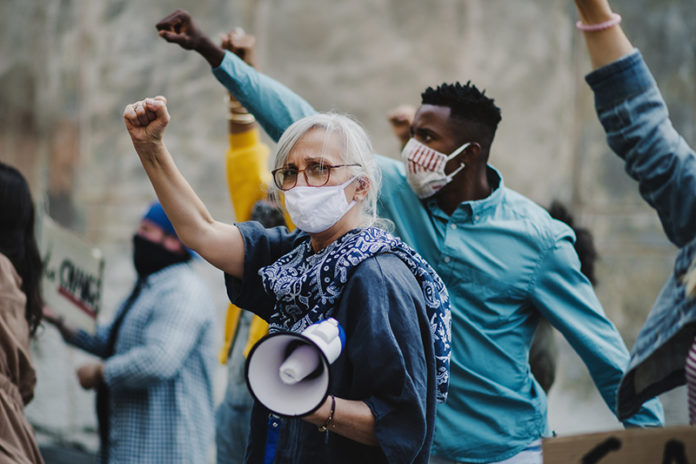The Department of Homeland Security is dismayed by the uproar over its new Disinformation Governance Board. DHS this week emphasized that the “internal working group,” which has no “operational authority or capability,” will focus on developing “best practices” to counter disinformation from foreign states and criminal organizations while protecting “free speech and other fundamental rights.”
Although Republicans who likened the board to an Orwellian Ministry of Truth were exaggerating, there are legitimate grounds for concern about the Biden administration’s broader assault on speech it views as dangerous. Even if the DHS board’s work does not amount to much, Americans are right to worry about the implications of that multifaceted campaign.
During congressional testimony last week, Homeland Security Secretary Alejandro Mayorkas noted that DHS had recently created a “misinformation/disinformation governance board.” Mayorkas was responding to a question from Rep. Lauren Underwood (D-Illinois), who mentioned “human smuggling organizations peddling misinformation to exploit vulnerable migrants” and said “disinformation is being heavily targeted at Spanish-speaking voters, sparking and fueling conspiracy theories.”
Politico reported that the board was supposed to “coordinate countering misinformation related to homeland security, focused specifically on irregular migration and Russia.” But when a reporter asked White House press secretary Jen Psaki about the working group on April 28, she said, “it sounds like the objective of the board is to prevent disinformation and misinformation from traveling around the country in a range of communities.” She added, “I’m not sure who opposes that effort.”
That broad description of the board’s mission, combined with Psaki’s apparent obliviousness to the civil liberties issues raised by government efforts to “prevent disinformation and misinformation from traveling,” seemed to validate the concerns of conservative critics. It did not help that Nina Jankowicz, the “expert on online disinformation” appointed to head the working group, had disparaged “free speech absolutists,” criticized Republican legislators for “laundering disinfo” and described the New York Post’s accurate reporting about emails from Hunter Biden’s abandoned laptop as part of “a Russian influence op.”
During a CNN interview on Sunday, Mayorkas conceded that “we probably could have done a better job of communicating what (the board) does and does not do.” But poor communication was not the only problem.
In a Feb. 7 National Terrorism Advisory System bulletin, DHS identified “the proliferation of false or misleading narratives” that “sow discord or undermine public trust in U.S. government institutions” as one of three “key factors contributing to the current heightened threat environment.” Those narratives, it said, included claims about election fraud and COVID-19, which fed “grievances” that “inspired violent extremist attacks during 2021.”
That view of controversial speech is consistent with the Biden administration’s attitude toward COVID-19 “misinformation,” which it has urged social media platforms to suppress.
Given the power that the executive branch wields over those companies, such pressure can easily lead to censorship by proxy.
The problem is compounded by the difficulty of defining “misinformation.” Surgeon General Vivek Murthy says it includes statements that are “misleading” even if they are arguably or indisputably true. Murthy’s definition hinges on the government’s assessment of “the best available evidence,” which “can change over time.”
That means “misinformation” is a moving target. What was once deemed “misinformation” on issues such as mask mandates and lockdowns can later be blessed by a government-validated “scientific consensus,” and vice versa.
Murthy says the “whole-of-society” effort to combat the “urgent threat to public health” posed by “health misinformation” may require “appropriate legal and regulatory measures.”
While Murthy, like Jankowicz, has no power to control what Americans say, the administration’s endorsement of his vision belies its avowed commitment to freedom of expression.
In a 2017 Washington Post op-ed piece, Jankowicz argued that the key to countering “fake news” is fostering “media literacy” so that people can better judge for themselves the credibility of online information. Unlike heavy-handed efforts to stop the spread of “misinformation,” that approach has the advantage of being constitutional as well as practical.































